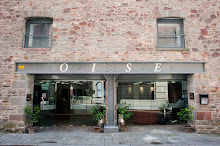How to avoid culture shock.
Nowadays a lot of people suffer from the culture shock. I'm sure that if you want you can avoid it. I hope the following advice will be of some help for you.
First of all, you should know that the culture shock includes the shock of a new environment and the shock of being separated from your home country.
If I were you, I would look information about the place before I' ll go to it. It's a good idea if you know about customs, tradition, rules of behaviour and cuisine of the destination country.
Moreover, I believe you should take something with you. it can be a toy, a photo, anything. Besides, it's a good idea if you keep in touch with your family, friends and native speakers of your country. You can do it through social network or your mobile phone.
I also suggest you to eat dishes from your country or to eat food which is similar to yours. If you do it, you won't feel sad and homesick.
All in all, don't be scared to travel abroad! Don't be afraid of culture shock! You can get through it with the help of this advice.
